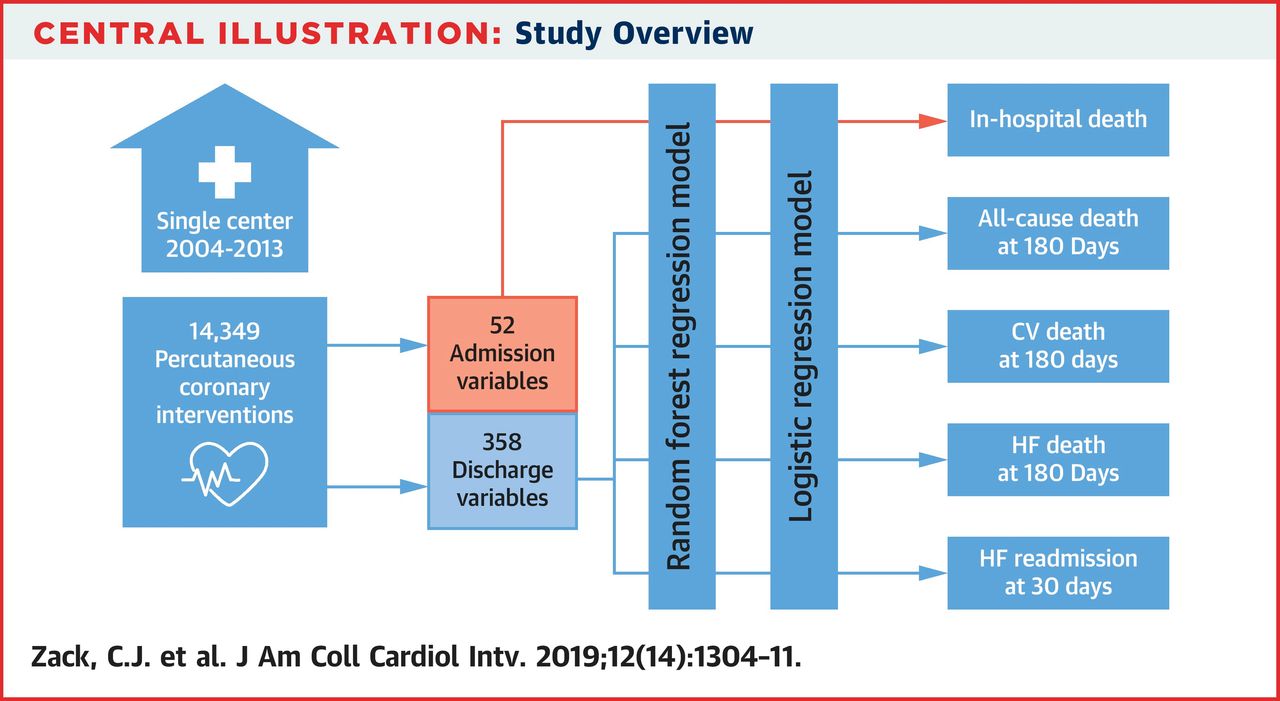
– New Mayo Clinic peer-reviewed study shows Medial EarlySign’s machine learning algorithm can predict which cardiac patients are at high-risk following discharge.
– The analysis was based on electronic health records (EHR), demographics, and social data collected from a cohort of 11,709 unique Mayo Clinic patients who underwent 14,349 PCIs during 14,024 hospital admissions.
– The study suggests AI solution can be more effective than traditional models to identify patients at risk of death or readmission for congestive heart failure.
Today, Medial EarlySign, a provider of machine-learning-based solutions to aid in early detection and prevention of high-burden diseases, today announced the results of new research with Mayo Clinic assessing the effectiveness of machine learning for predicting cardiac patients’ future risk trajectories following hospital discharge.
Study Background & Protocols
The peer-reviewed retrospective data study, Leveraging Machine Learning Techniques to Forecast Patient Prognosis After Percutaneous Coronary Intervention, published in JACC: Cardiovascular Interventions, evaluated the ability of machine learning models to assess risk for patients who underwent percutaneous coronary intervention (PCI) inside the hospital and following their discharge. The analyzed algorithm was developed by Medial EarlySign data scientists to identify patients at highest risk of complications and hospital readmission after undergoing PCI, one of the most frequently performed procedures in U.S. hospitals.
Study Results
The analysis was based on electronic health records (EHR), demographics, and social data collected from a cohort of 11,709 unique Mayo Clinic patients who underwent 14,349 PCIs during 14,024 hospital admissions. The patients’ mean age was 66.9, most were male (71.5%), 45.9% were obese, and 59.8% had a history of heart attacks.
The Bigger Picture
The study highlights the potential of AI solutions in supporting cardiology care teams in identifying and treating these high-risk patients. “Contemporary risk models have traditionally had little success in identifying patients’ post-PCI risks for complications, in-patient mortality, and hospital readmission. This study shows that machine learning tools may enable cardiology care teams to identify patients who may be on high-risk trajectories,” said Rajiv Gulati, MD, Ph.D., Interventional Cardiologist at Mayo Clinic.
The study revealed that Medial EarlySign’s algorithm had an excellent discriminatory ability using only data points available at time of admission or at discharge. Compared with standard regression methods, it was more predictive and discriminative at identifying in-patient sub-groups at high risk for 180-day post-PCI mortality and 30-day rehospitalization for congestive heart failure.
The algorithm also proved effective at identifying patient subgroups at high risk of post-procedure complications and readmission, supporting the potential role for integrating machine learning into clinical practice.
Impact of Machine Learning Models for Clinicians & Patients
“Machine learning models can help clinicians assess patient risk at different points on their clinical pathways, including hospital admission, discharge and future re-admission,” said Yaron Kinar, Ph.D., Medial EarlySign’s Chief Data Scientist. “Collaborating with Mayo Clinic clinicians for this retroactive study provided the added benefit of assessing how social and demographic information, together with routine lab and existing EHR data, can provide further insights to stratify patient risk.”
Medial EarlySign Background
Founded in 2013, Medial EarlySign’s suite of outcome-focused software solutions (AlgoMarkers™) find subtle, early signs of high-risk patient trajectories in existing lab results and ordinary EHR data already collected in the course of routine care. EarlySign’s AlgoMarkers are currently helping clients identify patients at high risk for conditions such as lower GI disorders, prediabetic progression to diabetes, downstream diabetic complications, first coronary artery disease (CAD) and equivalent events, and chronic kidney disease (CKD). As healthcare systems transition from volume to value-based care, EarlySign partners with health care organizations to support outcome-focused care delivery, while potentially preventing or delaying the onset of high-burden diseases, downstream complications, and their associated costs.
